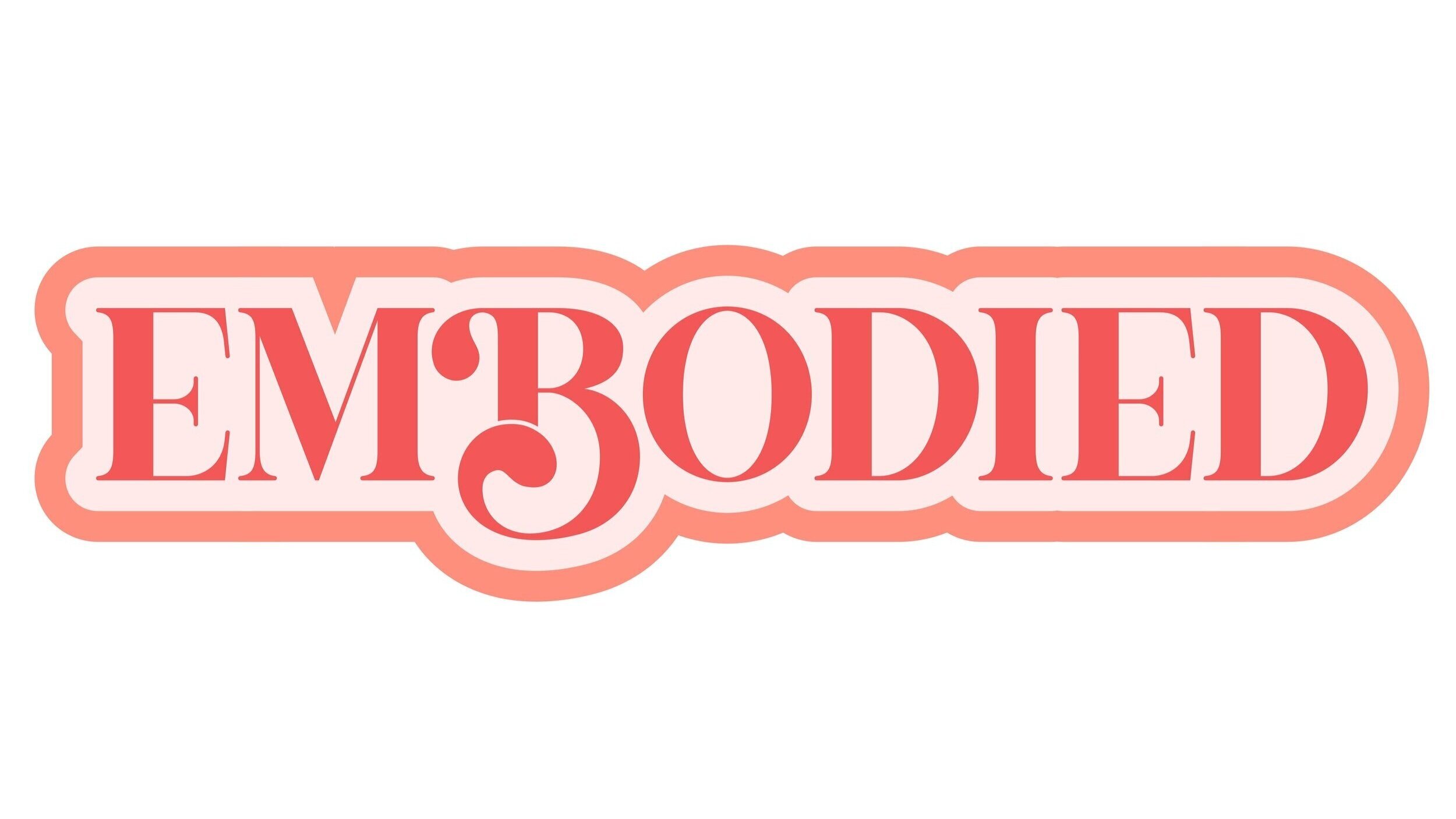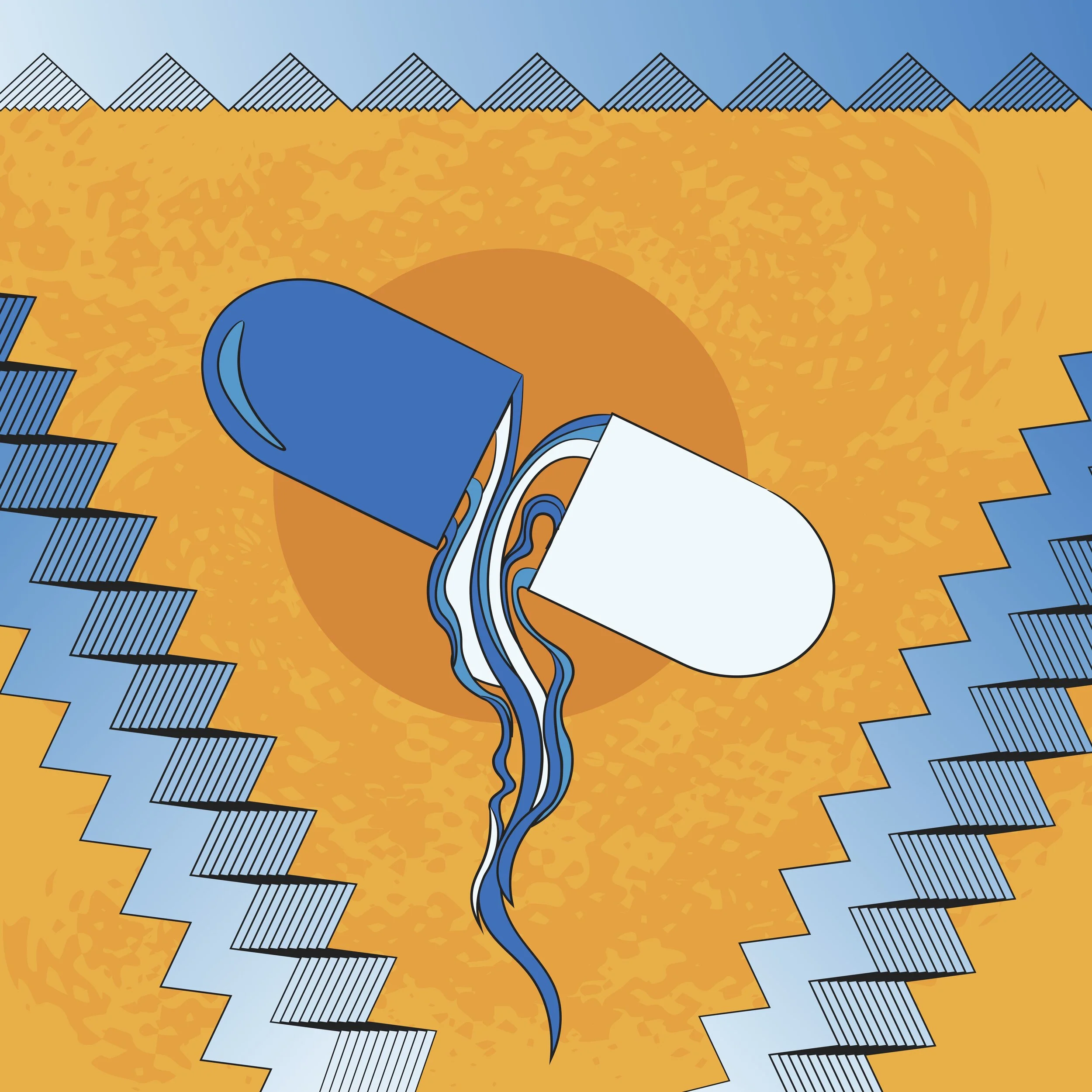Why does the Internet Hate Lauren Patten?
Breene Halaby
Art by Juliana Kulak
Few songs capture the chaotic rage of a jilted lover like Alanis Morisette’s “You Oughta Know,” the lead single from her 1995 album Jagged Little Pill. The oft-used karaoke anthem pulses with heartbreak, fury, and a sort of crazed sense of humor. In 2018, Jagged Little Pill was adapted into a musical, the alt-rock album becoming the soundtrack for the complicated life of a mixed-race household in Connecticut. “You Oughta Know” is performed by the character of Jo, played by Lauren Patten, as they process the news that their girlfriend has been cheating on them. The solo becomes an ensemble number, Patten’s voice backed up by nearly the entire cast as they artfully flail their limbs and mime tearing their hair out. On September 26th, Patten won the Tony Award for Best Featured Actress in a Musical, almost certainly for her rendition of this song alone. To say that Patten–who attended Tisch, but did not graduate–blew the roof off the theater is an understatement. When I saw the show, she received a mid-show standing ovation that lasted minutes. I cried in a way I have never cried before or since. They were tears of awe, of anger, of mutual queer understanding. It was, I affectionately say, Raw Dyke Energy. It was the show’s crowning jewel. Here’s how Twitter received the news of her win:
So, what happened? Well, let’s start from the beginning. In 2018, Jagged Little Pill opened in Cambridge, MA at the American Repertory Theater. A Wellesley native myself, I had the opportunity to see it. I wasn’t blown away (save for Patten’s role) and found myself cringing at how the teenagers were portrayed. Was this how adults saw us? Over-reactive, egotistical, and illogical? My grandmother felt the reverse and thought the adult characters were stuffy and lacked empathy. Through my high school, I had the opportunity to speak with the show’s dramaturg—a nebulous sort of job that’s neither director nor writer but works closely alongside both and is sometimes referred to as the “bridge” between the show and the audience. In a Q&A session, she was asked if she felt that the show had taken on “too much”: sexual assault, menstrual equity, interracial adoption, opioid addiction, secret queer relationships, among other complex themes. Her response was that all of these things can and do happen at once in real life and, therefore, should happen in their show. While I agree with her, unfortunately the book was not deft enough to weave these stories together in a way that didn’t feel like an episode of Degrassi. For instance, the character of Bella had no identity other than “the girl who got raped”. Despite its strong score and talented performers, there simply wasn’t enough time to explore each theme in any sort of depth.
In Cambridge, Jo used they/them pronouns, and their story was centered around their frustration with their parents’ lack of understanding of their gender identity. However, no concrete labels were used. To quote the producers, “In Jo, we set out to portray a character on a gender expansive journey without a known outcome”. In Jo’s words, “[my mom] was like, ‘I don’t get it! Do you want to be a boy or a girl?’ And I said, ‘First of all, if I got to decide what I was, I would be a koala.” This was the first time I had ever seen a non-binary character in musical theatre. The only other example I can think of to date is the mystical role of Pythio in the short-lived Head Over Heels. Therefore, this representation was groundbreaking. While Patten herself is cisgender, she identifies as a “bisexual queer woman”. And perhaps, at the time, the Jagged Little Pill team believed this to be “enough” to play a trans character. In a now-deleted Tweet from 2018, Patten said: “...my greatest hope for my part in #JaggedLittlePillART [is] to do my best to be a conduit for my GNC/NB/trans/queer/questioning fellows.”
When Jagged Little Pill transitioned to Broadway, Jo was changed to a cisgender character. Changes between off and on Broadway are normal, expected even, and don’t typically come with explanations. However, one could speculate that the creative team was faced with a choice: either change the role or recast the part. And no one was about to give up such a ferocious performer. So, Jo became “merely” a lesbian struggling with now-Christian parents, and Patten could stay without any backlash. While some criticized the erasure of a non-binary character, I believe that, as a ground rule, writers should have the freedom to rewrite their drafts as they see fit. While it’s certainly unfortunate for those who found much-needed representation in Jo, patrolling what is and isn’t “allowed” to be edited is not productive. However, this is not what Patten and the team are under fire for. In a 2020 interview with Vulture, Patten stated that “Jo never was written as anything other than cis.” This blatant revision of history enraged passionate fans, many of whom decreed this to be an example of gaslighting.
After Patten’s Tony win, I spoke with one of the moderators of an Instagram account called “jaggedlittletransphobes”, which is dedicated to documenting this controversy. They are known as Lancer, and they use they/them pronouns. Their words have been lightly edited for clarity.
B: Do you identify as trans or non-binary?
L: Yes. I am non-binary and have identified as such for about 5 months.
B: Did you see the show either in Cambridge or New York?
L: I haven’t and have no desire to.
B: What was your reaction when you heard that Lauren Patten won the Tony Award?
L: I watched the Tony Awards live and was having so much anxiety throughout the whole day due to it. I was nervous of the outcome. When the nominations were being announced live and they said “and the Tony goes to…” my heart sank into my stomach. I started crying when I heard “Lauren Patten”.
B: Can you explain why it’s important for trans characters to be played by trans actors?
L: It's important for trans characters to be played by trans actors because trans actors are the only people who can do it with enough authenticity and knowledge to move other members of the trans community. Representation matters, especially with trans people in theatre. Iris Menas (zie/hir) was the third and most recent trans actor to ever play a lead role on Broadway, which happened in 2020. It should’ve happened earlier. We should have lost count by now. Trans people deserve a place in theatre just as much as anybody else does.
B: Would you use the term “gaslighting” in regards to how the JLP team handled this situation?
L: Yes, yes, 100%. We have all the proof in the world of Jo’s non-binary identity. We have all the proof in the world of that erasure. For Jagged Little Pill to say to us, “No. Jo was never non-binary. You guys just take interpretations too seriously.” IS gaslighting. It’s especially harmful to the people who admired Lauren because of her confirming multiple times via Twitter that Jo was non-binary/trans.
A week before the Tony awards, the JLP team released an apologetic statement regarding the erasure of Jo’s identity, noting that the choice was intended to “clarify and streamline” the story. They went on to say, “Compounding our mistake, we then stated publicly and categorically that Jo was never written or conceived as non-binary.”
So what happens now? Jagged Little Pill intends to re-open on October 21st, and many online are calling for Patten to drop out. But what crime has she commited, exactly? She said that Jo was always cis and deleted tweets that implied otherwise. To me, this reads like a clumsy PR cleanup, possibly out of her control. I do not believe she should be held responsible for the changes to the script. But while I could sit here and write to defend her, there are plenty of trans and non-binary actors who are hustling for work. If trans people say that they have been hurt by her actions, as a cis person I will not try to debate their pain. In Patten’s Tony speech, she said, “First and foremost I want to thank my trans and non-binary friends and colleagues who have engaged with me in difficult conversations and joined me in dialogue about my character Jo.” Perhaps these words would mean more if her work mirrored their intent.



